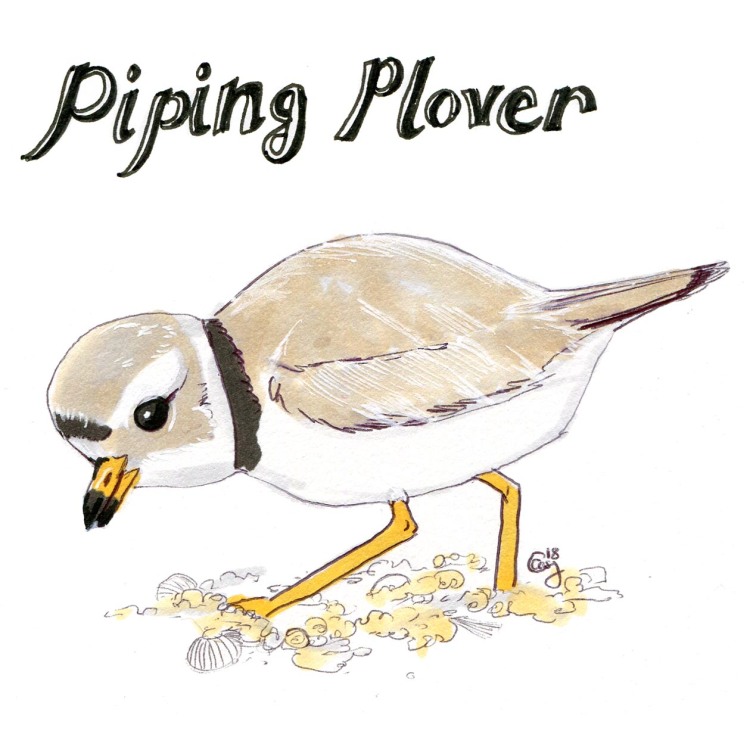 About Them: Piping plovers are one of the adorable little birds you see running about in the surf. They spend most of there time on the ground to move about and they are able to blend into the environment so well it can be almost impossible to see them. This is unfortunately part of why they are having such a hard time surviving. Their bodies and their eggs aren’t seen until it is too late.
About Them: Piping plovers are one of the adorable little birds you see running about in the surf. They spend most of there time on the ground to move about and they are able to blend into the environment so well it can be almost impossible to see them. This is unfortunately part of why they are having such a hard time surviving. Their bodies and their eggs aren’t seen until it is too late.
Their plight: They are trying to share the same beach and waterway space as humans and their pets. These birds used to use most of the states east of the Rocky Mountains, 37 states, for breeding and wintering. Now that space is very limited where it is free of human encounters such as damming, purposeful flooding, dogs off leash running through nests or chasing the birds, car driving on beaches, humans walking through or chasing the birds.
What we should consider: There are many people that would be content to use the beach so they can enjoy watching wildlife. As a birder, I actually try to get off the beaches by 10-11 on weekends because it is so unsettling to watch how most people use the beach. It hurts watching people and dogs chase birds. It is beautiful to watch birds fly suddenly in a flock, but making them do this is not ok. Birds on a beach are resting, some have just migrated 1000s of miles and are worn out. They deserve to use the beach how they want to, it’s their only home. Dogs need to be on a leash when in a public space that is for multiple uses. There are designated dog runs and fenced in fields. Also, why does anyone other than a lifeguard/coast guard need to be driving on a beach?
What is being done: Advocacy groups are doing there best to get beach activities controlled and limited. They are setting up physical barriers between nesting pairs and beach goers. They are helping to create legislation that puts in place formal protections and by defining what is safe beach and coastal land use by humans.
How to help: Protect the dunes and coastal habitats by staying off them and keeping dogs on leashes so, they aren’t destroying habitat or wildlife.
Continue bringing awareness. Call into state senators when legislation is being passed that could affect the continued support of policy that protects wildlife and coastal lands. Support locally.
Support can be:
- donating to science groups
- helping to ensure funding to the organizations that creating breeding programs
- being a citizen scientist through
- land restoration project
- trash clean ups
- species counts
- bio blitzes
- getting people you know excited about how incredible our planet’s biodiversity is.
Joining your local Audubon Society is a great first step into finding activities and ways to become a citizen scientist and environmental advocate.
Further Reading, my sources:
https://www.allaboutbirds.org/guide/Piping_Plover/overview
https://www.fws.gov/midwest/endangered/pipingplover/pipingpl.html
https://www.fws.gov/plover/facts.html
https://www.audubon.org/field-guide/bird/piping-plover
https://defenders.org/piping-plover/basic-facts
https://defenders.org/success/cape-hatteras-protections-upheld
https://www.biologicaldiversity.org/programs/public_lands/off-road_vehicles/index.html
https://www.biologicaldiversity.org/species/birds/piping_plover/index.html
http://www.nhptv.org/natureworks/pipingplover.htm
[This is a blog of my opinions. I speak for myself. I am a one person team and if I have misinterpreted a fact or made an error please feel free to get in touch to correct me. I will make edits and updates to post. I would appreciate corrections to be polite. I will not engage in hate.]